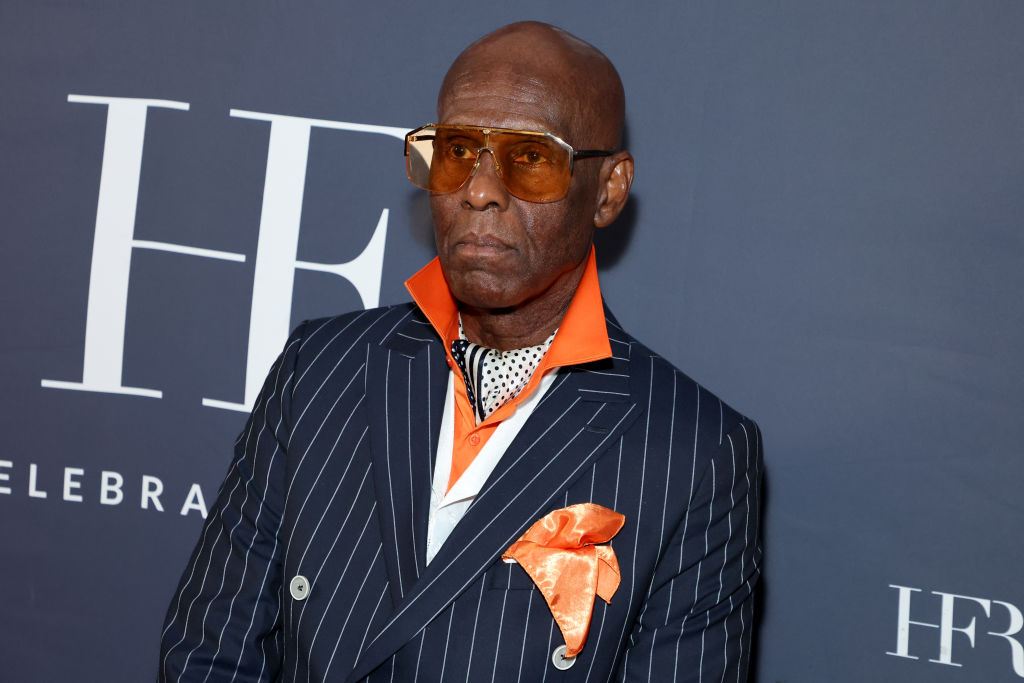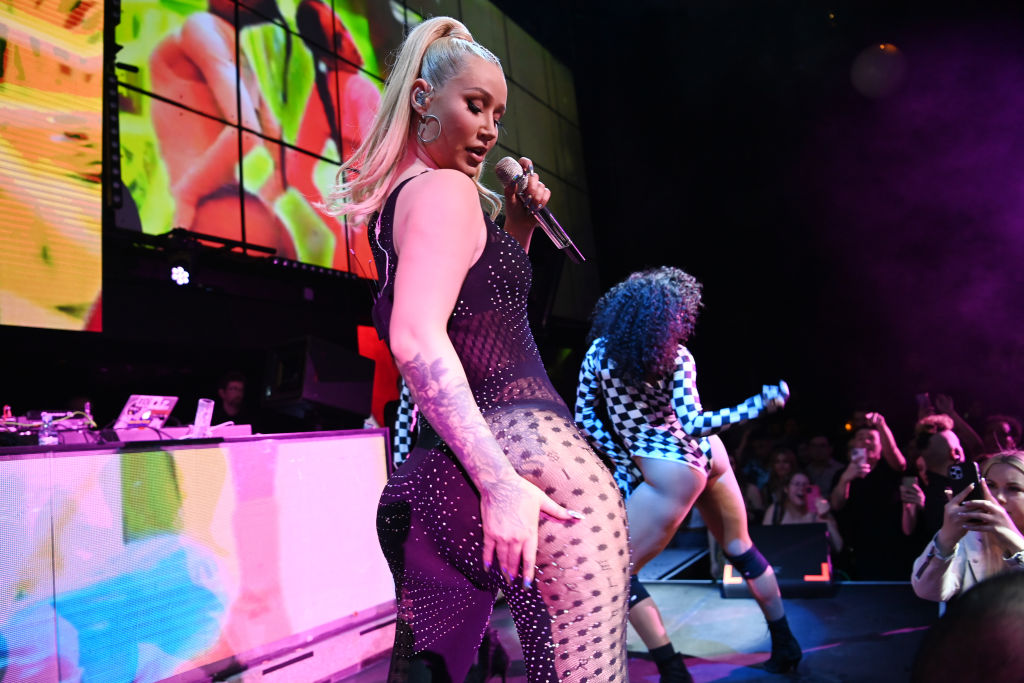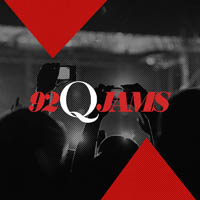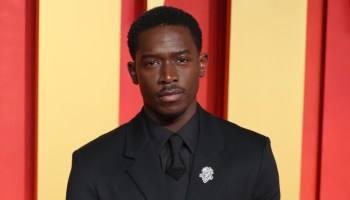
Source: Arturo Holmes / Getty
Harlem designer Daniel “Dapper Dan” Day has rightly received accolades for his three-decade career fashioning garments for celebrities. His groundbreaking work, using logos of famous design houses, ultimately earned him partnerships with Gucci, The Gap, and now, Puma.
In April, Puma announced that Daniel “Dapper Dan” Day would be part of The Collective, a group including June Ambrose, Hype Williams, and Jay-Z, that would be the faces and style consultants of the sneaker brand’s “For All Time” collection of classic looks. Dapper Dan’s contribution featured a collection of logo-heavy knitwear that includes tracksuits and down jackets with his logo that showcased his upscale approach to streetwear.
“You can’t stop culture,” Day said in his campaign ad for the collection.
In a recent interview with Claima Stories, Day discussed how his concept of “logomania” has made him a lasting influence in the fashion industry. He defines “logomania” as “an implementation of symbols that personify luxury.”
“It’s still the same symbols but I took them to a level where they never been used like that before,” Day says. “The symbols didn’t change, just the way they were reflected.”
Day personified luxury after opening his eponymous boutique on 125th street, the area’s most important commercial shopping district, in the ’80s. As his career expanded, first with local gangsters, then with the growing hip-hop community, Day was on his way to becoming a fashion legend, although the fashion houses whose logos he freely used didn’t acknowledge or work with him until years into his career.
In 1988, the store was so popular, it became a part of one of the most notorious fights of Mike Tyson’s career — though it took place outside the ring. Tyson was shopping at Dan’s Harlem boutique when he got into an altercation with fellow boxer Mitch “Blood Green,” who he’d defeated in an official match two years before. This is a story Tyson has oft-repeated to hilarious effect.
Day says that logomania is the heart of his success but says that he never attended a runway show until his partnership with Gucci in 2018.
“That was the first runway show I’ve ever been to. Everything else that I’ve engaged in was always Black. In Harlem. I traveled from here to Chicago, hitting all the Black ghettos, and from New York to Atlanta. So it was entirely a Black staircase and that’s what I mean when I say I came up the Black staircase.”
Though many fans knew his work from hip-hop album covers and in magazines, Day’s legacy remained largely unsung until his partnership with Gucci. But his logo-heavy approach helped bring brands like Gucci and Louis Vuitton new life as accouterments of luxury due to his use of their logos on everything from custom clothing to car upholstery. He can rightly be viewed as one of the pioneers of designers lending their name and logos to everything from home design to technology.
“I do not dictate fashion, I translate culture,” Day told Claima Stories. “That’s what we do. How do you do that? I often equate it to the Harlem River. I was born near the Harlem River…. I used to swim in the Harlem River, but before me and my friends would swim we would throw a popsicle, so we would understand how the current is….We wanted to dive off the bank…but we needed to know which the current was going. So we’d throw a popsicle in….The Harlem River is always there and always moving but you have to understand how to manipulate within the current…
When it’s the jazz age, I’m looking at how it is evolving. I’m looking at rock and roll and how it’s evolving. I’m looking at hip-hop and saying, ‘this is what you want to look like?’ I throw that popsicle there… I asked Eric B and Rakim ‘how do you want to look?’ Eric B. is a swag guy so I swagged him out. Rakim is into the Five Percent Nation, so I set him like that. Jungle Brothers is into ethnocentric stuff, liberation stuff, so I make them outfits in red, green, and Black. BDP is into rasta rap so I make them [like that]. I don’t dictate how they should look, which is the problem [with the fashion industry.] They don’t leave the door open for the culture to evolve on its own….The moment you start dictating culture, you kill it.”
Watch the full interview below:
—
Photo: Getty
Dapper Dan Talks Fashion, Culture, & The Keys To His Success was originally published on cassiuslife.com

















